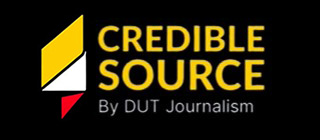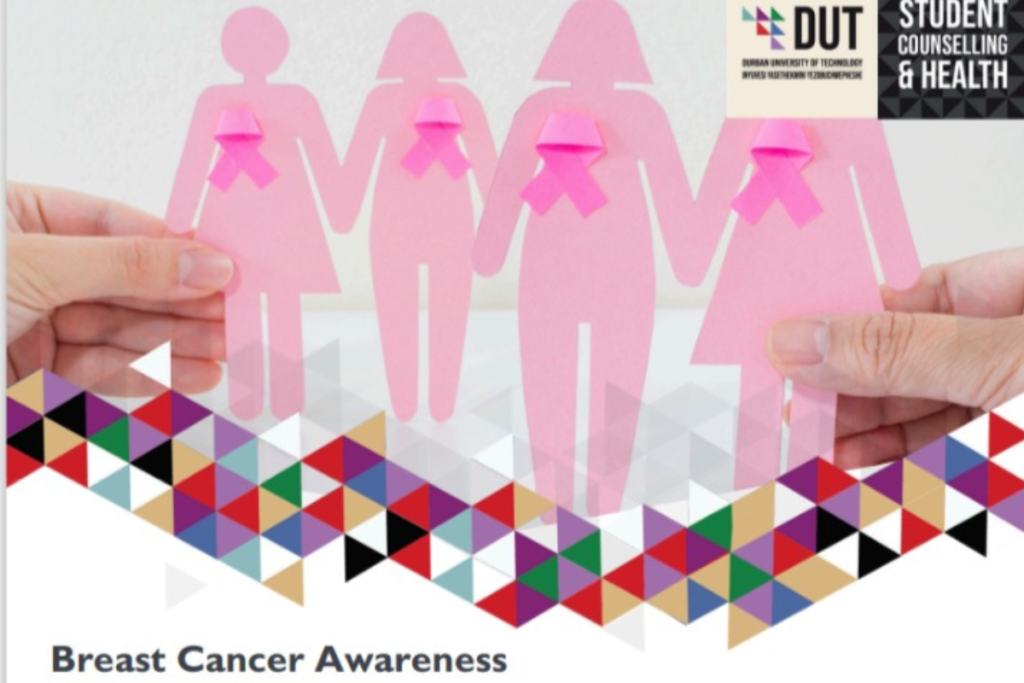By Zanethemba Tembe
The Durban University of Technology (DUT) held a webinar recently in recognition of Breast Cancer Awareness Month.
DUT Student Health Services hosted a webinar on 24 October to educate the students about early detection, screening methods, risk factors and support for those affected.
The seminar aimed to raise awareness and promote education about breast cancer, encouraging women and men to prioritise their breast health, and support those affected by it to overcome the mental issues that come with being diagnosed.
The webinar featured expert insights from Dr Ayanda Gwala, a general practitioner at Mahatma Gandhi Hospital.
She highlighted the importance of early detection of symptoms and encouraged proactive health monitoring among participants.
Gwala said: “The first symptom is a lump or thickening (of the breast). It might not be a lump, but you feel it when you examine yourself that it is likely thicker than other areas. The other one can be a change in breast size or shape. A noticeable change in size or shape of the breast should be examined by the doctor.”
She emphasised the importance of understanding the risk factors of breast cancer for effective prevention and early detection.
“Both genders are at risk, but more in the females, due to a combination of genetics. But, males are also at risk in terms of age. The older you get, the risk increases. With gene mutations, we have people with good genes. Your BRCA 1 (breast cancer gene 1) is more susceptible to breast cancer and other genes have also been associated with increased breast cancer risk, although their impact is less pronounced compared to BRCA 2 mutations,” Gwala said.
She underscored how crucial routine mammograms are for early detection and successful treatment.
A breast cancer survivor, Nalini Naidu, spoke about her experience from the time she found a lump in her breast until the tumour was removed successfully.
“In 2004, I found a lump in my right breast. I had it removed, although it was not malignant. Again in 2007, I felt another lump in my breast. It took me months to seek medical help, but this time around the results were malignant. I had Stage 2 cancer. I went through six cycles of chemotherapy and radiation therapy. It was extremely hard, but with the positive attitude, love and support from my family and friends, life was bearable.”
A male student, Thamsanqa Ndelu, deemed the webinar crucial in raising awareness.
“I think breast cancer awareness is important because it affects many people. We were taught that early detection can save lives. I appreciate Student Health Services for giving us a chance to engage more about such issues,” he said.
Another student, Asanda Kubheka, found the webinar informative, particularly for men.
“As a guy, I thought breast cancer didn’t affect men, but I have learnt that men can get it too. I realise now how important it is for everyone to be aware and support one another.”


